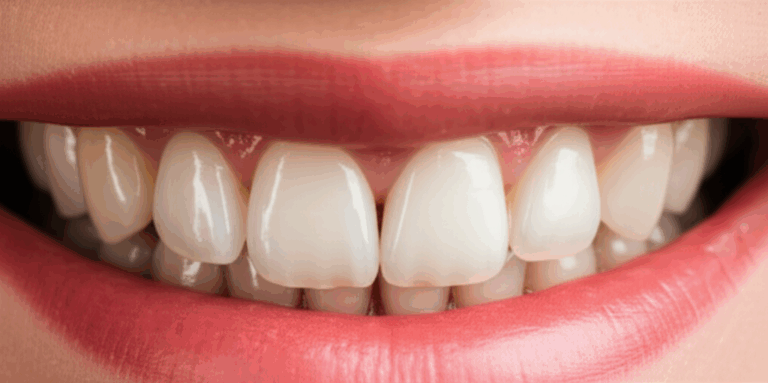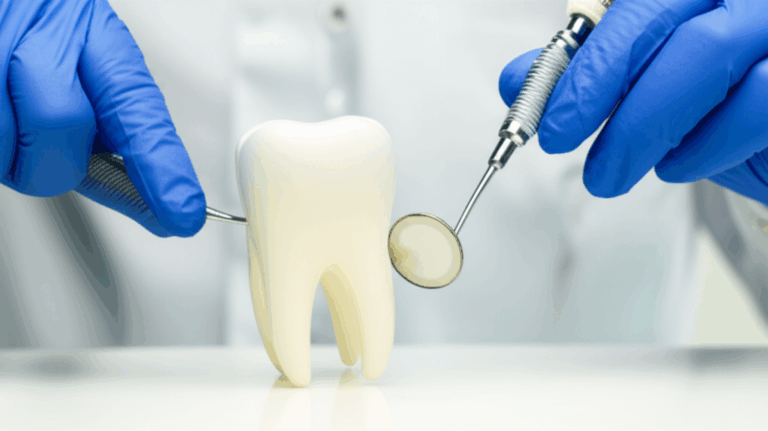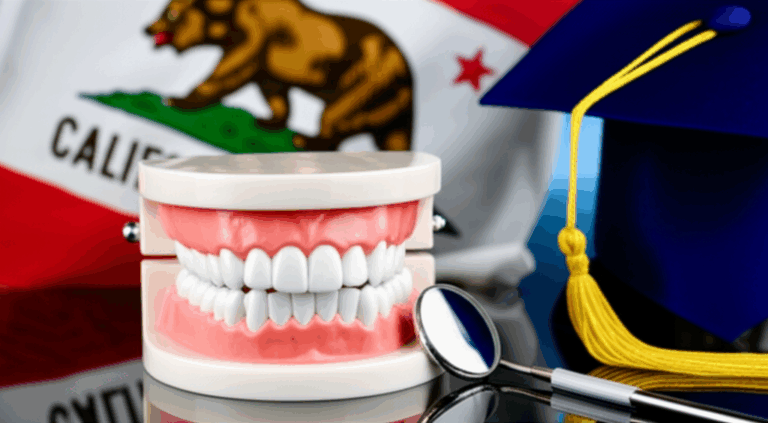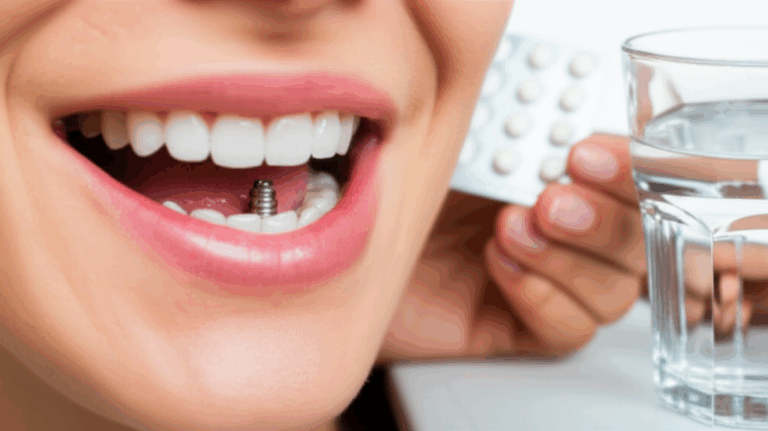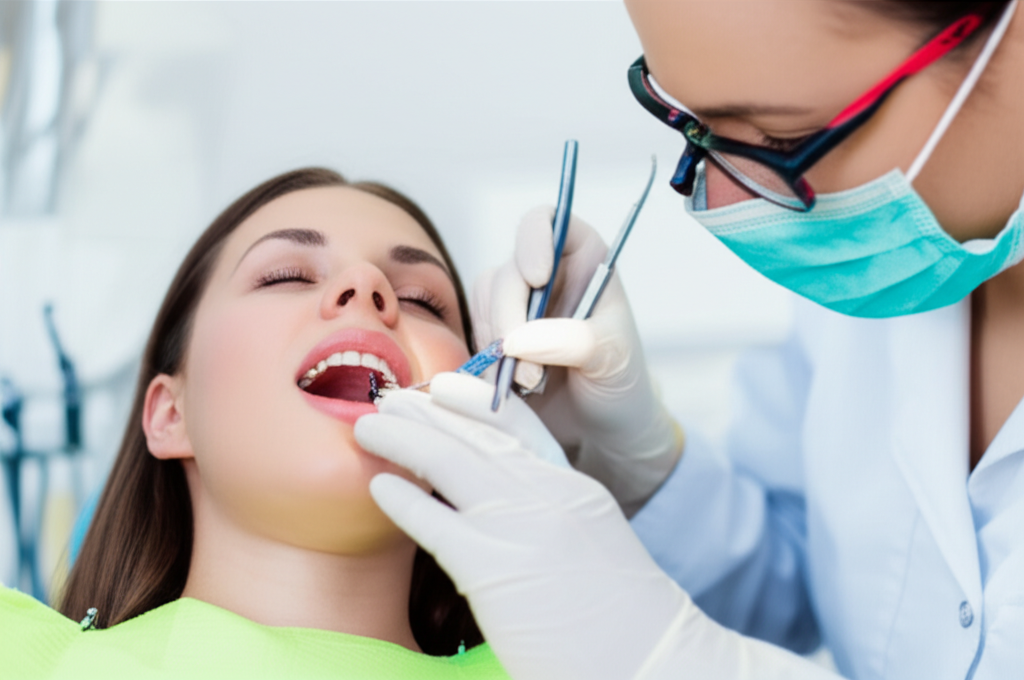
How to Make Dentist Shots Not Hurt: Your Guide to a Pain-Free Experience
That nervous feeling you get as you sit in the dentist’s chair? You’re not the only one. The sound of a dental syringe being opened or just hearing the word “shot” makes lots of people uneasy every day. If you’ve ever wondered, “Why do those numbing shots at the dentist have to hurt—and is there any way to skip the sting?”—good news! Dentistry today gives you more ways to feel comfortable and in control than ever before.
This guide will explain why dental injections sometimes hurt, tell you what you and your dentist can do to make it easier, and help you feel more relaxed for your next appointment. Ready for a shot of confidence—and less pain? Let’s get started.
What We’ll Cover
In This Article:
- Facing Dental Injection Fears: Why Does It Hurt?
- What Actually Happens During a Dental Shot?
- Proven Ways to Make Dentist Shots Not Hurt (for Every Patient)
- Dentist Techniques and Devices That Minimize Injection Pain
- Your Active Role: How to Help Yourself During Dental Injections
- After the Shot: Staying Comfortable and Safe
- Choosing a Dentist Who Puts Comfort First
- Frequently Asked Questions About Dental Shot Pain
- Key Takeaways and Your Path to a Better Dental Experience
Facing Dental Injection Fears: Why Does It Hurt?
First, let’s answer the main question: Is it normal to be nervous about numbing shots at the dentist? Yes, it is.
You’re not alone—research says more than one in three people feel some worry about going to the dentist, and for many, seeing a needle near their mouth is the scariest part. Pain and fear usually go together, and if you don’t know what’s going on, it can feel much worse.
But here’s the good part: The days of “just deal with it” are over. Dentists now have lots of ways to make even the most nervous person feel easier and make shots almost painless.
What Actually Happens During a Dental Shot?
What really causes that small pinch or sting when you get numb at the dentist?
Dental shots can hurt for two reasons:
Think of it like this: Filling a small water balloon slowly makes it stretch easily. If you turn the water on full blast, it suddenly fills and feels tight—or could even pop!
Add in the way most people feel about needles (especially in the mouth), old stories about “bad shots,” and the worry that you might still feel pain during your dental work, and you’ll see why people get nervous.
Proven Ways to Make Dentist Shots Not Hurt (for Every Patient)
Are you new to dental care or just tired of the sting? Having a pain-free dental shot is possible. Here’s how you—and your dentist—can work together to make it better.
Topical Anesthesia: Numbing the Top Layer
Way before the needle comes close to your gums, your dentist can put a numbing gel, spray, or patch on your skin. These topical anesthetics (like 20% benzocaine or a lidocaine blend) numb the surface, so you often don’t feel the “pinch” at all.
Quick Tip: Ask your dentist if they use numbing gel, and make sure they leave it on for at least 1–2 minutes before the shot. Don’t let them rush!
Tell Your Dentist If You’re Nervous
Feeling nervous? Tell your dentist. A good dentist listens—without judging—and has tricks for making shots hurt less. The more they know what bothers you, the better they can help.
You can ask:
- “What can you do to make the shot easier for me?”
- “Can you use numbing gel or warm up the medicine?”
- “Do you have ways to help people who are afraid?”
Calm Yourself Before Your Appointment
Our brains like to make worries seem bigger, especially in the dental chair. Try these easy ways to keep calm:
- Deep breathing: Slow breaths help you relax.
- Listen to music or a podcast: Keeping your mind busy really helps.
- Play with a stress ball or fidget toy: Give your hands and mind something to do.
Distraction in the Office
Some dentists use TV screens above the chair, or little buzzing gadgets that help you pay attention to the pleasant feeling instead of the poke (we’ll talk about these below!).
For Kids (and Grown Ups Who Want Some Fun)
- Bring a favorite toy.
- Ask about distraction tools for children.
- Dentists might use silly names or stories for shots, like calling it “sleepy juice.”
Dentist Techniques and Devices That Minimize Injection Pain
Dentists can make a scary shot feel like nothing. Here’s how they do it:
Technique is Important (And Some Dentists Are Really Good at It)
A gentle hand really does make a big difference. What should your dentist do?
Go Slow!
Pushing the numbing medicine in slowly (about 1ml per minute) lets your tissue soak it up gently, so you don’t feel a sudden sting or burn. Fast shots usually hurt!
Warm Up the Anesthetic
Did you know that medicine at room temperature feels less cold or sharp? Dentists can warm it up with a special device or even just a mug of warm water.
Make the Solution Less Acidic (Buffering)
Regular numbing meds are a bit sour (acidic), which can make them sting. Dentists can mix in something (sodium bicarbonate) to make them more comfortable when injected.
Gentle Tissue Handling
Pulling your skin tight, picking the best place, and using the smallest needle can all help. Good dentists can make the shot so gentle you hardly feel it.
Cool Gadgets and New Tools
Some dentists use special equipment to help you feel even less pain. Here’s what’s out there:
Vibrating Devices (DentalVibe, Vibraject, etc.)
These gadgets buzz right at the injection spot, which confuses your nerves. With a nice buzz, your brain pays less attention to the poke.
Up to 85% of people feel less pain thanks to these vibrating tools!
Computer-Controlled Shots (Like The Wand)
This small computer gadget controls how fast and hard the anesthetic is pushed in. Instead of a sudden push, you get a slow, steady flow—most people barely notice the shot at all.
Sedation Options
Still scared of needles? These options can help:
- Laughing gas (nitrous oxide): Makes people calm but awake.
- Oral sedation: A safe pill that takes the edge off before you arrive.
- IV sedation: For those really afraid, this makes you relaxed or even sleepy during work.
Ask your dentist if these choices are safe and right for you.
Your Active Role: How to Help Yourself During Dental Injections
Your dentist does most of the work, but you can still help yourself. Try these easy ways to make things better:
Look Somewhere Else
Pick a spot on the ceiling, count tiles, or read a poster. Letting your mind wander can help you feel less worried.
Breathe—Don’t Hold Your Breath
Holding your breath makes you feel more tense. Take a deep breath through your nose and let it out slowly through your mouth. Pretend you’re blowing out your fears as you exhale.
Use a Hand Signal
Ask your dentist if you can raise your hand if it hurts too much. This gives you more control and helps you feel safe.
Bring a Fidget Toy
Fidget spinners, a stress ball, or just talking to your dentist can help you pay attention to something nice, not the shot.
After the Shot: Staying Comfortable and Safe
You got your injection—now what?
Expect to Feel Numb
That weird feeling like you have a “fat lip” or “big cheek” is normal. It means the numb medicine is working.
Some Tips:
- Don’t chew food until your mouth “wakes up”—you might bite yourself by accident!
- Avoid hot drinks until feeling is back—you might burn yourself.
- Gently move your jaw side to side. Sometimes this makes the numbness go away a bit faster.
When to Call the Dentist
Most of the time, numbness goes away in a few hours. But if it stays too long, you get swelling, or you hurt a lot, call your dentist. Most side effects are minor, but your dentist wants you to be safe and comfy.
Choosing a Dentist Who Puts Comfort First
Not every dentist is the same. Finding a dental office that really cares about your comfort can make all the difference. Here’s how to pick the right one:
Ask These Questions at Your First Visit
- Do you use numbing gel, vibrating devices, or computer-controlled anesthesia?
- Can you help people with dental fear?
- Do you have special ways for helping kids or nervous patients?
Watch Out For These Signs
- Bad sign: “Shots always hurt. You just have to put up with it.”
- Good sign: “Your comfort comes first! Let’s talk about what can help you.”
Look for “Gentle Dentistry” or “Pain-Free Dentistry”
Offices that say this usually have newer tools and take extra time for worried patients.
Building Trust
Find a dentist who listens to you. Great dental care starts with someone who hears your worries and respects you. For more info on new technology and gentle care, check out a top china dental lab or other digital labs focused on patient comfort.
Frequently Asked Questions About Dental Shot Pain
1. Do dental shots hurt more for some people?
Yes. How much you worry, how much pain you can stand, and even how thick or sensitive your gums are can make a difference. Your dentist can use more or different numbing medicine if you need it.
2. Can numbing gel make the needle not hurt at all?
If numbing gel is used right, most people only feel a little pinch or nothing when the needle goes in. The gel numbs the top, the shot numbs deeper down.
3. What if I’m allergic to regular numbing shots?
Always tell your dentist about allergies or reactions. There are different kinds of numbing shots your dentist can use.
4. Will vibrating devices or The Wand cost more?
Some dentists might have a small extra charge for these high-tech options. But lots of offices think it’s worth it so patients feel better.
5. How long does dental numbness last?
Usually, numbing goes away in one to three hours. It depends on the medicine and your body. If it stays too long, call your dentist.
Want to learn more about how digital dental labs make care better? Check out our digital dental laboratory guide to see how new tools are changing dentistry for patients.
Key Takeaways and Your Path to a Better Dental Experience
Here’s a quick review to help you get ready for a pain-free dentist shot:
- It’s totally normal to be scared of dental shots.
- Pain from shots is from the needle and the pressure of the medicine—but both can be made better.
- Topical gel, going slow, warming or buffering the medicine, and new gadgets can all help make shots much easier.
- You have choices: Distraction, music, deep breaths, and even sedation can help calm you.
- Talk to your dentist. Ask questions, say what worries you, and look out for your comfort.
- A good dentist makes a huge difference. Search for gentle and pain-free offices.
- You can help too: Choose something to focus on, use deep breathing, and set up a hand signal.
Your Next Step
Gone are the days of “just deal with it.” Modern dental care cares about your comfort. Don’t be shy about saying you’re worried or uncomfortable; together, you and your dentist can make a plan just for you—so don’t let fear keep you from getting a healthy smile.
Curious about new dental materials and comfort options? Read more from a trusted dental ceramics lab or ask your dentist about sedation choices next time.
Take charge. Ask questions, get the facts, and never settle for painful dental care again.
Here’s to your next dentist visit being easier, calmer, and maybe even pain-free!
References available if you ask, from places like the American Dental Association and real patient surveys. For more comforts, check good dental directories or ask your dental office what pain-free tools they use before you make an appointment.

